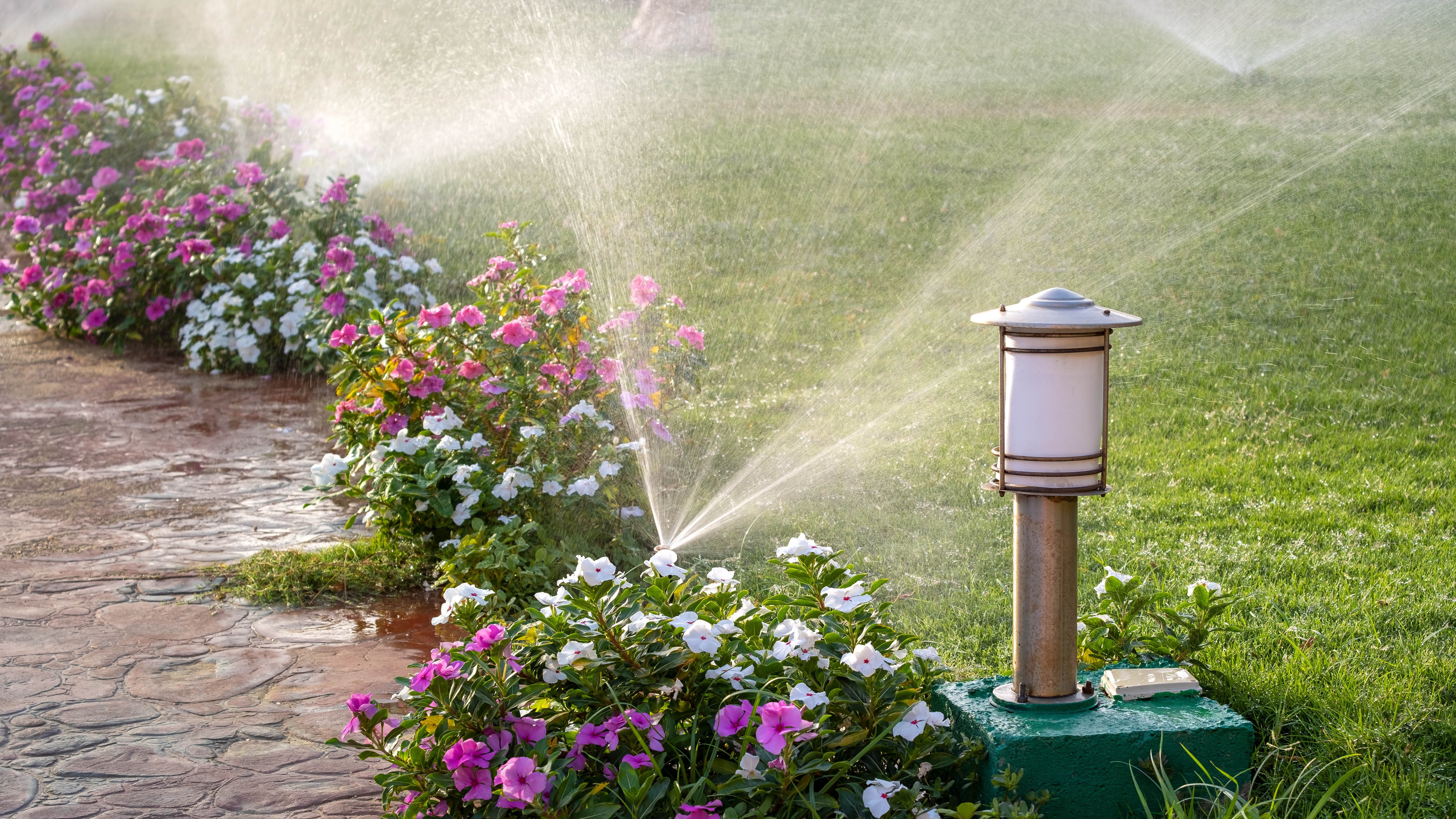
Watering your lawn can help it stay lush and green throughout the summer. But lugging your hose around the yard and watering your grass manually can be a real drag.
A water sprinkler system can keep your grass freshly watered with minimal effort on your part, but is it worth the cost?
To learn more, we consulted Ryan Farley, co-founder of LawnStarter, who shared with us the most important things to consider before buying a water sprinkler system. Here’s what he told us.
1. The size and shape of your lawn
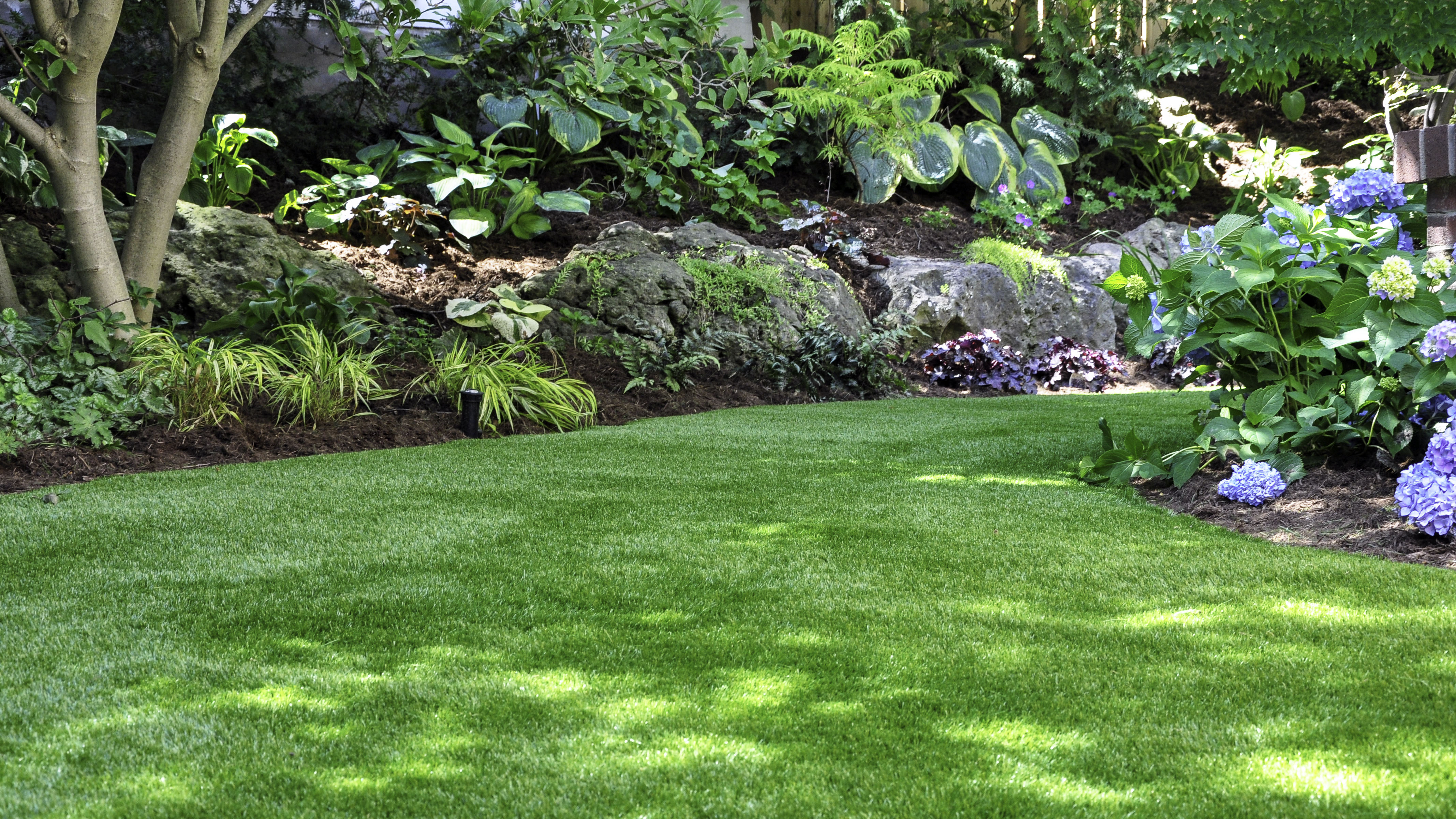
Not all lawns need sprinkler systems — especially those on the smaller side. “A very small lawn is sometimes easier to just water on your own,” says Farley.
Smaller lawns might be more efficient to water by hand, though you may still prefer to automate the process with a sprinkler system.
The size and shape of your lawn also determine the best spray pattern for the area, which you’ll need to know to choose the most effective system for your yard.
For example, square yards are often suitable for oscillating or rotating sprinklers, while unusually shaped yards may be better suited to a walking sprinkler or several sprinklers targeted at specific areas to minimize water waste.
2. The number of sprinkler heads and zones needed
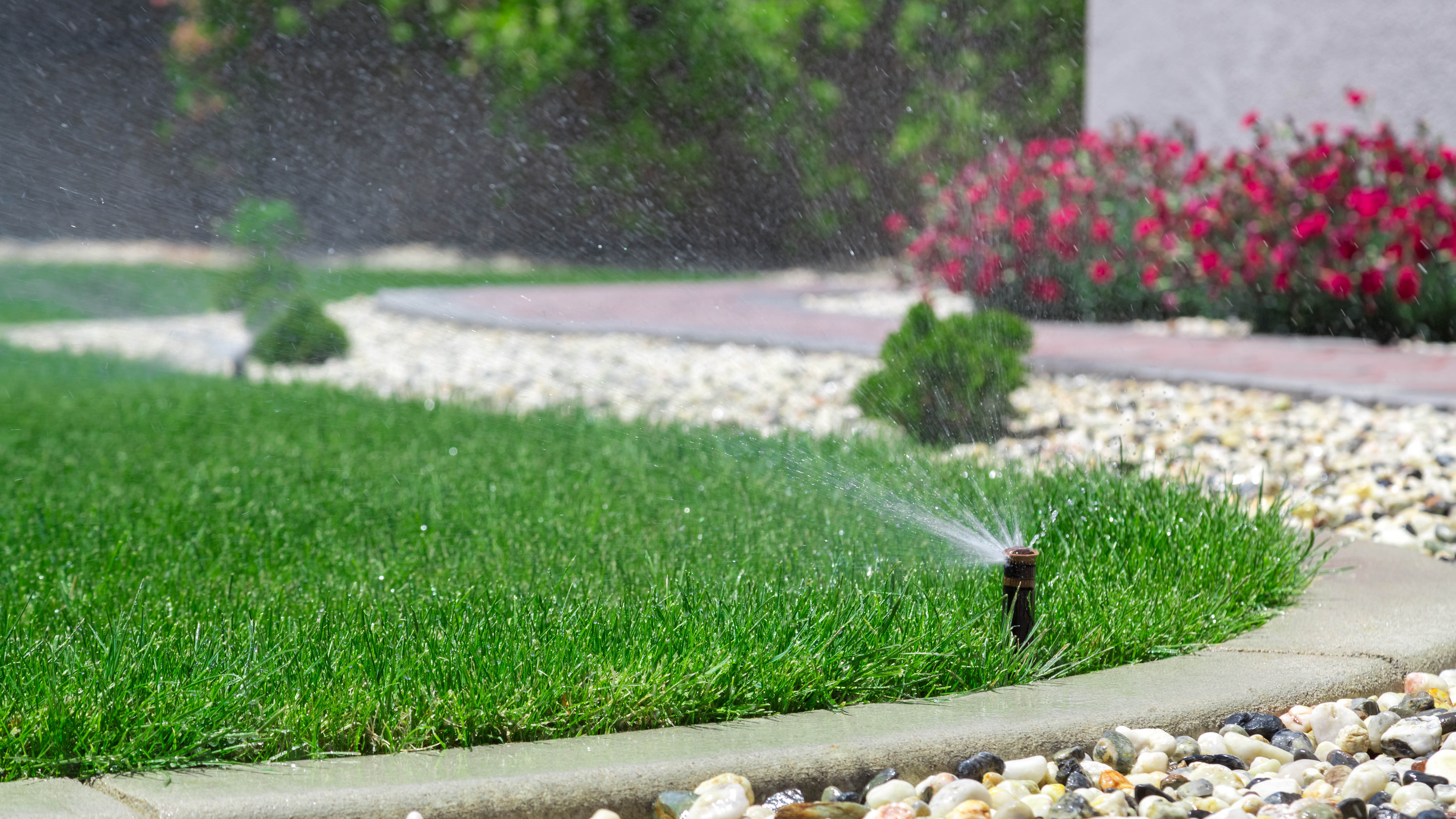
Knowing the size of your lawn also helps you determine how many zones and sprinkler heads you’ll need.
“I would say one of the biggest things to consider with a sprinkler system is the size of your lawn and how many individual sprinkler heads or zones you're looking at,” explains Farley.
Larger lawns will typically have multiple zones, or sections, each with its own sprinkler head to ensure complete coverage. Before you buy a sprinkler system, it’s wise to plot out how many zones you’ll have in your yard so you can come up with a realistic budget.
“It can definitely help to have a good idea of this beforehand, since naturally it will influence the cost as well as how you're going to be operating and maintaining the system,” Farley says.
“Zones can be differentiated to meet individual needs of certain plants or areas of your landscaping, so you can have drip irrigation versus a more traditional spray for your lawn.”
3. The type of sprinkler system you want
There are several types of sprinklers. The type you choose will depend on the size and shape of your yard as well as your watering needs.
Learn more about each type of sprinkler system below.
4. The type of grass you have
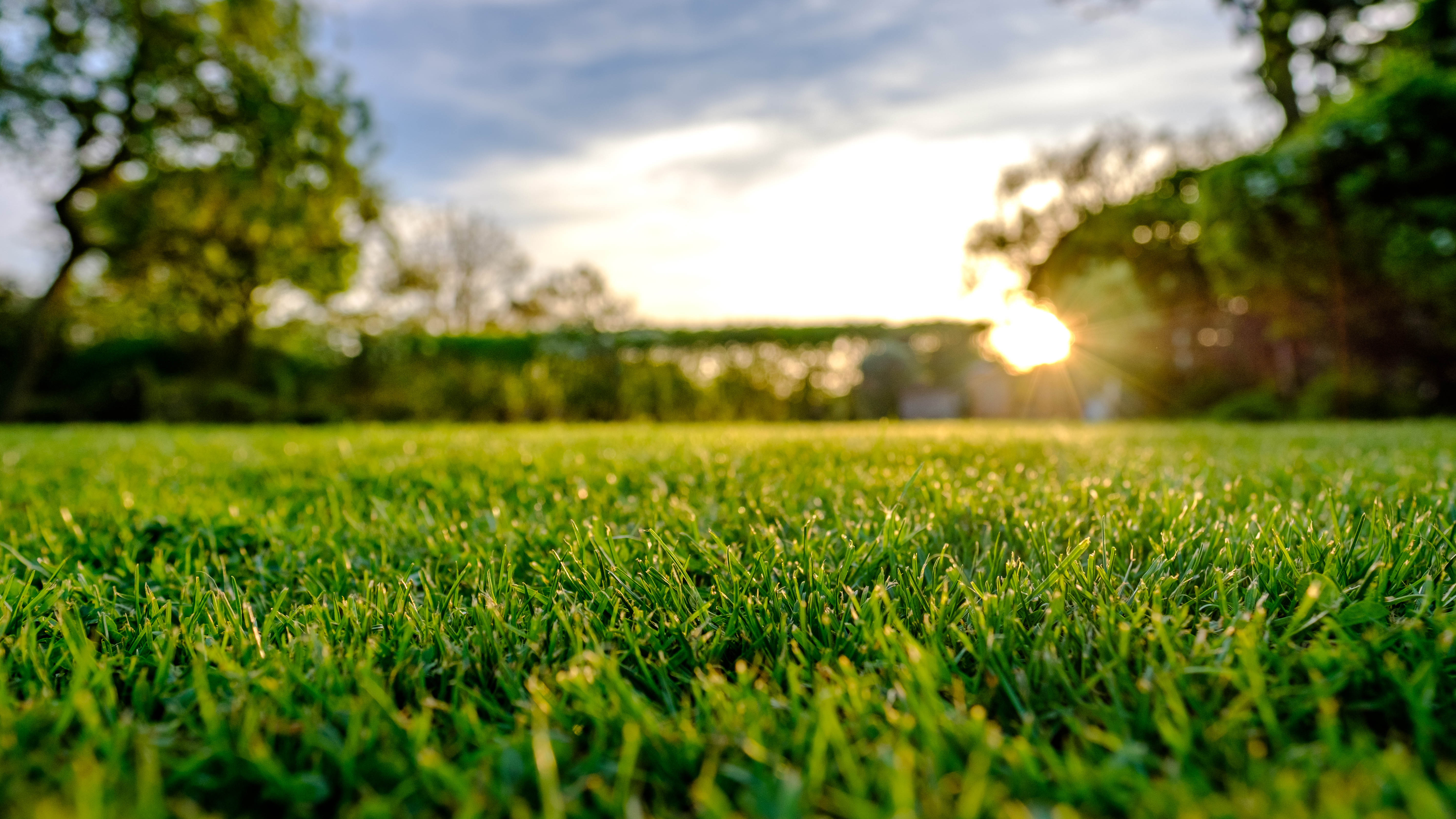
Not all types of grass are compatible with sprinkler systems. If you install a system on a lawn planted with certain kinds of grass, you could actually damage your lawn. Knowing the type of grass you have and its specific watering requirements is essential before investing in a sprinkler system.
“I'd say very low-water, low-maintenance grass types like buffalo grass can sometimes suffer from a sprinkler system, since they're native to areas of the country that don't receive consistent rain,” explains Farley.
Even if you have a grass type with low water requirements, you could still use a sprinkler system with some modifications. “Even these grass types can do okay on a sprinkler system as long as it's adjusted properly to meet the specific needs of the specific grass,” Farley says.
5. Ongoing maintenance requirements
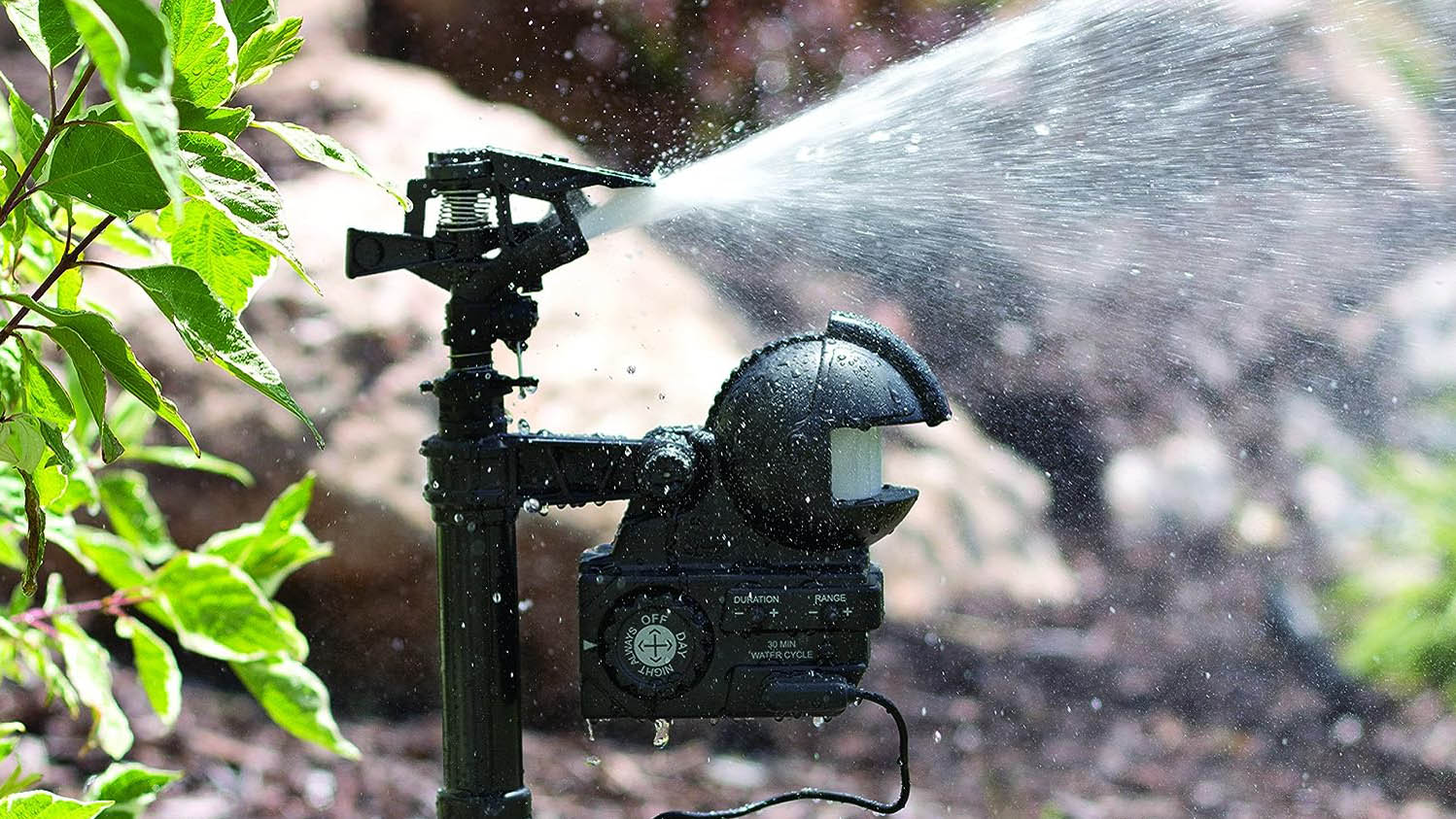
Buying and installing the sprinkler system is just the first step. These systems require regular maintenance to remain in good condition, allowing you to use them for years to come.
“When it comes to maintenance, I will recommend twice-yearly checkups of your system,” recommends Farley. “This can be something you do yourself, or something you hire a professional for.”
If you’re not mechanically inclined or don’t know how sprinkler systems work, it’s best to leave these check-ups to a pro.
However, the maintenance itself can be quite straightforward. “Typically, maintenance will just involve running your sprinkler system to check that all of your sprinkler heads are watering as they should, and that they're watering in the right direction,” Farley explains.
“You can identify any clogged heads or any that have gotten knocked around. I recommend doing this at the very least before winter, so you can clear up any clogs and clean your heads before they're dormant for a few months.”
Failure to winterize your sprinkler system can lead to expensive damage come springtime.







